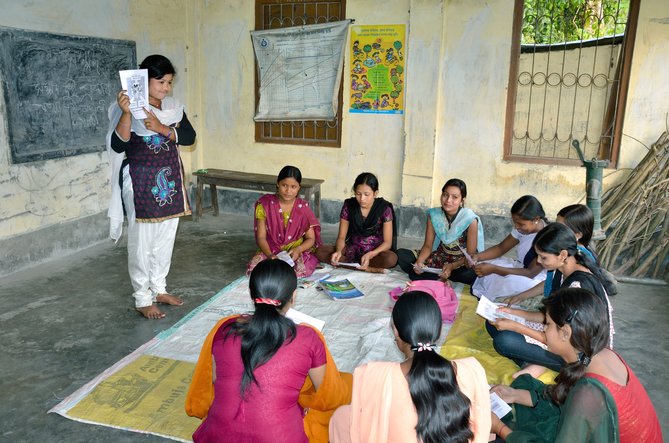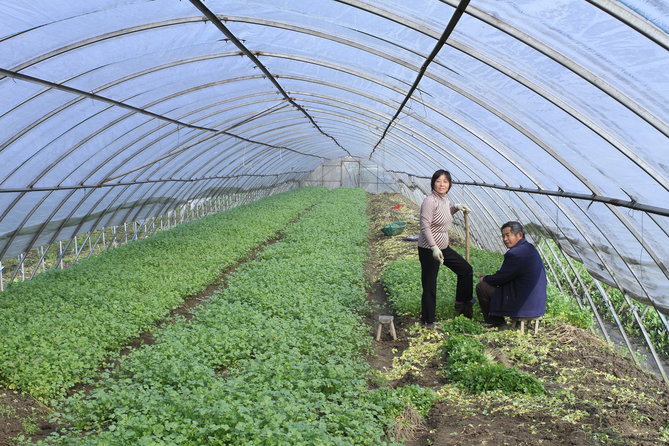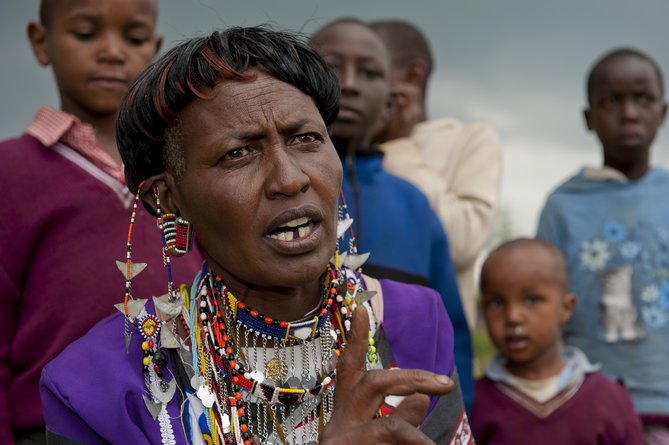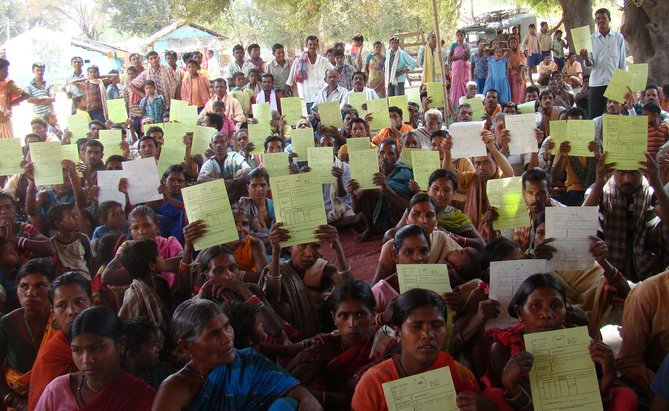Got land rights?
If you live in North America or Europe, the answer is probably: yes.
If you live in the developing world, the answer is more likely: no.
Your answer to this simple question largely determines your ability to feed your family, send your children to school, invest in the future, live with security.

Thousands of girls in West Bengal, India are learning about their inheritance rights and receiving agricultural training to combat child marriage
You may never have thought much about the deed to your house, the title to your land, or the lease for your apartment. But those pieces of paper, and the legal infrastructure behind them, are largely what allow you to head to work every morning without the fear that someone will move into your home while you are gone. You can even get a late start on your vegetable garden without fear that your neighbor will see your vacant land as an opportunity for their own personal enrichment.
This security gives you a long-term planning horizon. And that, it turns out, is critical not just to improving agricultural production and food security, but also to conservation efforts.
I’ve been working for more than 40 years to give the world’s poorest people more secure land rights – to give them the opportunity and incentive to invest in their land to improve their harvests.
Below are the ten most important things we have learned about land rights in those four decades.
1. It takes very little to make a big difference
“Micro-plots,” house and garden plots as small as one-tenth of an acre, can contribute greatly to the income, nutrition, status and security of poor rural households. They are a financially and politically feasible tool for addressing large scale poverty and landlessness.
2. Robin Hood is not a good role model
Confiscatory land reform only undermines the rule of law. Land reform must be democratic and market friendly – using land purchased on the open market for fair compensation or using public land of decent quality and location.
3. You can’t build castles in the clouds
Broadly distributed secure land tenure is a fundamental requirement not only for agricultural development, but also for a range of economic, social, and political development goals.

One of millions of families in China who now have the legal security to make long-term investments in their land
4. Bigger is not always better
Counterintuitive though it may seem, small farms in the developing world – where labor is plentiful and has few competing uses – are as productive as or more productive per acre than large plantations and collective farms.
5. Women hold up half the sky
When women hold secure rights to the land they depend on, they use that security and power to ensure that their children’s educational and nutritional needs are met. This sets in motion a generational change.

One of the first women to be elected as an Elder in Kenya after Maasai communities learned about women’s rights guaranteed in the country’s new constitution
6. Worth fighting for
Many of the most tragic and long-running conflicts in the last century (such as: the Vietnam War and Central America’s insurgencies) were fueled by land based grievances. Broadly distributed and secure land rights are essential to preventing and solving these conflicts.
7. No one washes a rental car
Once farmers have secure rights to their land, they take care of it. They invest their savings and labor into improving the land to boost their harvests sustainably.
8. Farmers want their own patch of Eden
The great majority of the rural poor, in most country settings, want their own separate farm, and not to be part of a larger enterprise such as a collective farm.

Thousands of families receive legal title to plots of land in Odisha, India
9. It takes two to tango
Successful land tenure reform requires the commitment and engagement of a country’s government, which must be a full partner in the enterprise.
10. We can eliminate hunger
The goal of “zero hunger” on our planet is achievable. The majority of the hungry are, ironically, farmers. Land tenure reform can give them the security, opportunity, and incentive to better feed themselves, their families, and their communities.
This post originally ran on the ONE Campaign blog on August 21, 2014.
Follow Landesa on Twitter at @Landesa_Global to learn more.
